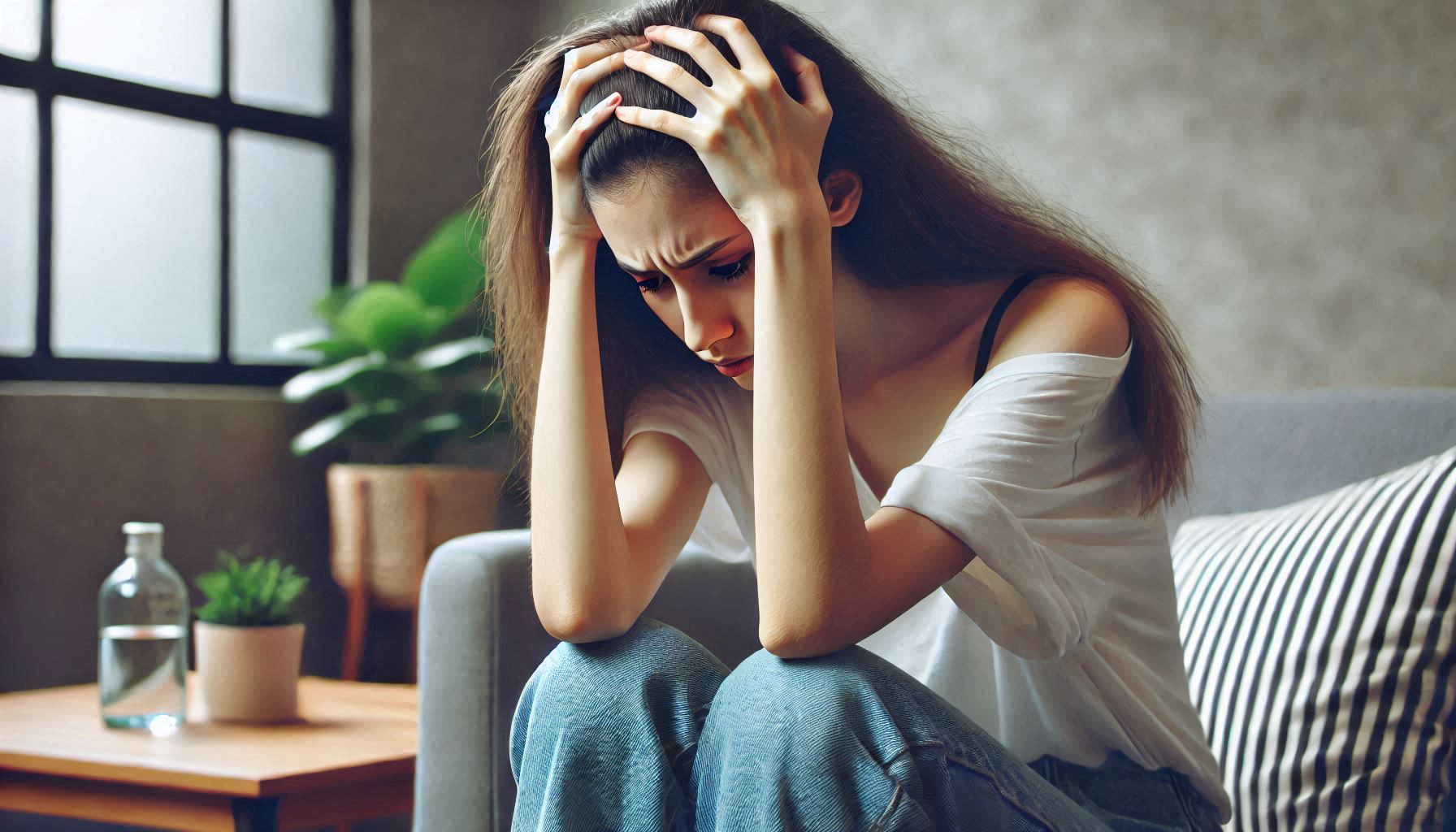Shopping Cart
CloseNo products in the cart.
Filter
closeLiving in the Shadow of Pain: The Impact of Endometriosis on Mental Health and Relationships
Author: ItHurts.com
A Comprehensive Talk on Living in the Shadow of Pain: Endometriosis

Understanding the Basics:
Living with endometriosis is often an invisible struggle, yet its impacts can be profoundly visible in the lives of those it touches. Affecting approximately 1 in 10 individuals assigned female at birth, endometriosis is a chronic condition where tissue similar to the lining of the uterus grows outside it, causing debilitating pain, infertility, and a host of other symptoms. But while the physical toll is significant, the emotional and relational burdens of endometriosis are often underestimated.
The Mental Health Toll of Endometriosis
A Cycle of Chronic Pain and Psychological Distress
Living with endometriosis often means enduring relentless physical pain. Chronic pain can lead to increased levels of cortisol, the stress hormone, which in turn can heighten anxiety and lower one’s threshold for handling further stressors. For many, the physical discomfort of endometriosis is matched—or even exceeded—by the emotional weight of living with an unpredictable, often misunderstood condition.
Depression and Anxiety
Studies have shown that individuals with endometriosis are significantly more likely to experience depression and anxiety. This is no surprise, considering the condition often impacts one’s ability to work, maintain an active social life, and even engage in basic self-care. Pain flare-ups can be isolating, leading to feelings of loneliness and hopelessness. Furthermore, uncertainty about when symptoms might strike next can create an ongoing state of anxiety.
Body Image and Self-Esteem Issues
Endometriosis often affects self-esteem, particularly for those who experience infertility, bloating, or weight fluctuations as part of their symptoms. The societal pressure to maintain a certain image, combined with the emotional toll of not being able to meet cultural or personal expectations regarding fertility, can exacerbate feelings of inadequacy and low self-worth.
The Hidden Grief of Endometriosis
Endometriosis often brings with it a sense of loss—loss of health, normalcy, and sometimes the ability to have biological children. This grief can be ongoing, compounded by frustration over medical dismissals or delayed diagnoses, which average seven to ten years. Unprocessed grief can fuel feelings of anger, sadness, and resentment, creating a barrier to mental and emotional healing.
How Endometriosis Affects Relationships
Romantic Relationships
- Impact on Intimacy
One of the most challenging aspects of endometriosis in romantic relationships is its impact on intimacy. Pain during intercourse (dyspareunia) is a common symptom, leading many individuals to avoid sexual activity altogether. This can strain even the most understanding partnerships, as feelings of rejection or guilt often arise on both sides.
- The Burden of Caregiving
Partners of individuals with endometriosis often take on caregiving roles, which can lead to emotional burnout. They may struggle to balance their empathy for their partner’s pain with their own unmet needs for connection, intimacy, or shared activities.
- Communication Breakdowns
If not addressed openly, endometriosis can lead to misunderstandings and resentment. A lack of education about the condition can cause some partners to underestimate its impact, dismissing symptoms as “just bad cramps.” This invalidation can erode trust and intimacy in the relationship.
Platonic Relationships
- Social Isolation
Living with chronic pain often means canceling plans or withdrawing from social activities, which can strain friendships. Over time, some individuals with endometriosis may feel misunderstood or forgotten, leading to further isolation.
- Emotional Burdens
Friends may not always know how to support someone with a chronic illness. They might offer well-meaning but unhelpful advice or unintentionally minimize the condition, causing hurt feelings and a sense of alienation.
- Workplace Relationships
Endometriosis can also affect professional relationships, as frequent absences or the inability to perform at full capacity may lead to misunderstandings with colleagues or employers. This can further impact one’s mental health, creating a vicious cycle.
Strategies for Navigating the Emotional and Relational Impacts of Endometriosis
- Acknowledge the Emotional Toll
Recognizing and validating the emotional impact of endometriosis is an essential first step. Therapy can be particularly beneficial in helping individuals process grief, build coping mechanisms, and develop strategies for navigating relationships.
Action Tip:
Consider seeking a therapist experienced in chronic illness. Cognitive-behavioral therapy (CBT) can be especially effective in addressing anxiety and depression linked to chronic pain.
2. Educate Yourself and Others
Education is key to fostering understanding. Whether it’s sharing articles with loved ones or attending informational sessions together, learning about endometriosis can help bridge the gap between those living with the condition and their support networks.
Action Tip:
Compile a list of reputable resources about endometriosis and share it with your partner, friends, or family. Encourage them to ask questions and engage in conversations about your experience.
3. Foster Open Communication
Being open about symptoms, needs, and emotions is vital in maintaining healthy relationships. In romantic partnerships, discussing how endometriosis affects intimacy can help reduce feelings of guilt or rejection. For friendships, honesty about physical and emotional limitations can prevent misunderstandings.
Action Tip:
Use “I” statements to express feelings without placing blame. For example, “I feel overwhelmed when my pain isn’t acknowledged” instead of “You never take my pain seriously.”
4. Set Boundaries
Setting boundaries is an important form of self-care. This might mean declining invitations during flare-ups or explaining limits to what you can contribute in relationships. Healthy boundaries protect emotional energy and prevent resentment.
Action Tip:
Practice saying, “I can’t do that right now, but I’d love to when I’m feeling better.” This reinforces your willingness to engage while respecting your limitations.
5. Build a Support System
Isolation exacerbates the challenges of living with endometriosis. Connecting with others who understand the experience, whether through local support groups or online forums, can provide validation and encouragement.
Action Tip:
Look for endometriosis-focused support groups on platforms like Facebook or through organizations like the Endometriosis Association. Sharing stories and tips with others in similar situations can be empowering.
6. Explore Alternative Approaches to Intimacy
For couples struggling with the sexual impacts of endometriosis, exploring alternative forms of intimacy can be healing. Emotional closeness, non-sexual physical affection, and open discussions about needs and desires can help maintain a strong connection.
Action Tip:
Work with a sex therapist familiar with chronic illness to explore ways to rebuild intimacy without pressure or pain.
Advocating for Change
Endometriosis doesn’t just affect the individual; it ripples through their relationships and communities. Advocacy plays a vital role in improving awareness, treatment, and support for those living with the condition.
Steps to Take:
– Raise Awareness: Share your story or support campaigns to educate others about endometriosis.
– Push for Better Healthcare: Advocate for more research funding, better diagnostic tools, and comprehensive care options.
– Encourage Workplace Policies: Promote policies that support employees with chronic illnesses, such as flexible work hours or paid medical leave.

Final Thoughts:
Endometriosis is more than a physical condition; it’s an emotional and relational challenge that requires compassion, communication, and resilience. By addressing the mental health toll and fostering open, empathetic relationships, individuals with endometriosis—and their loved ones—can find pathways to healing and connection.
If you or someone you know is navigating the complexities of endometriosis, remember that you are not alone. Seek support, speak up for your needs, and build relationships grounded in understanding. Together, it is possible to face the shadow of pain and find moments of light.
ItHurts.com is your ally in your endeavor to live pain-free. We offer guidance, resources, and community support to address chronic pain, emotional stress, and physical discomfort. Discover insightful articles, product reviews, recommendations and shared experiences to empower your journey to better health. Remember, if it hurts, we can help!
Related Products
No posts found!
Related Blogs
No posts found!
